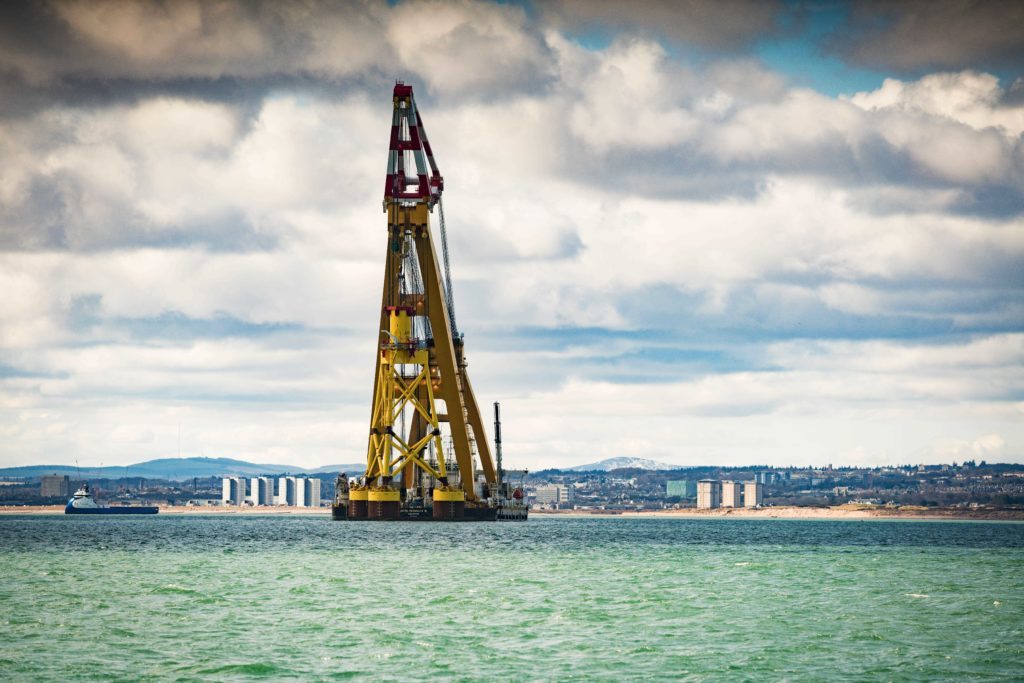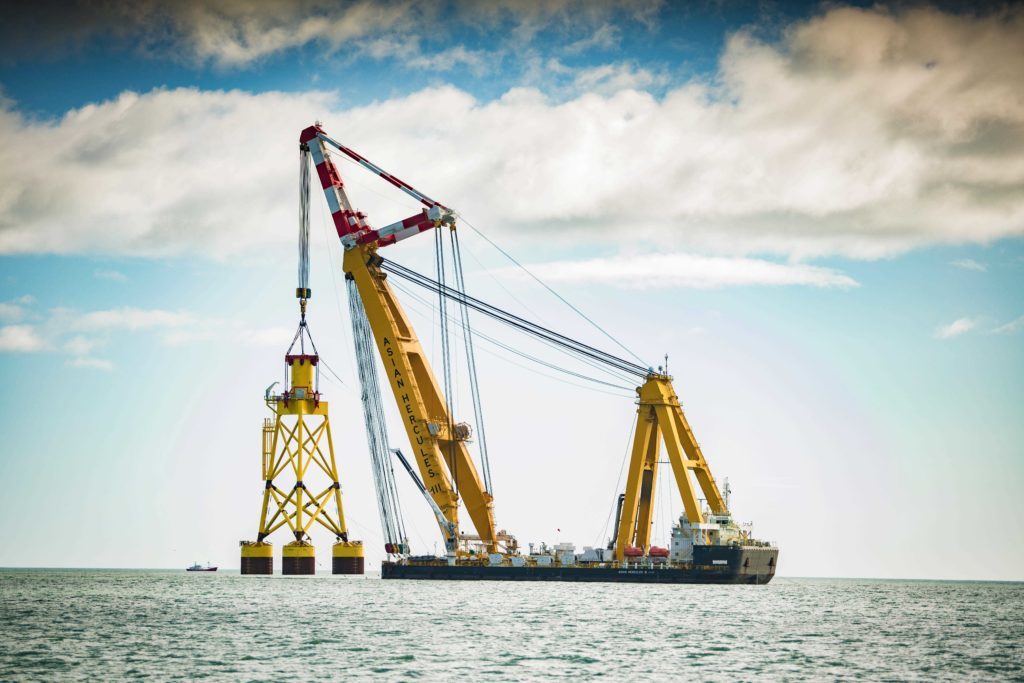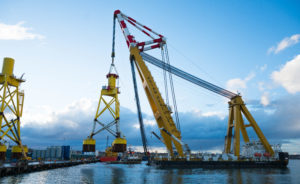
The giant Asian Hercules crane vessel has been pictured installing the first turbine foundation for Vattenfall’s Aberdeen Bay wind farm.
One of the world’s largest and most versatile floating cranes – the 25,000 tonne Asian Hercules III which has a lifting capacity of 5.000 tonnes – lifted and installed the first 1,800 tonne structure yesterday.
Aberdeen Bay is the first offshore wind project to deploy the foundations at commercial scale with each of the 11 steel jacket foundations weighing in at almost ten Boeing 747s.

The 77 meter-high, 1,800 tonne steel jacket foundations stopped briefly in Dundee before making their way to Peterhead after travelling by barge from Newcastle.

Gunnar Groebler, Vattenfall’s senior vice president of Business Area Wind, said: “The EOWDC is a cornerstone of Vattenfall’s and the industry’s drive for innovative cost reduction in offshore wind. To be fossil free within one generation a climate smart offshore wind programme embracing science and technology is really important for Vattenfall. Where appropriate, we are keen to see the EOWDC’s novel approach to foundations – along with all its other innovations – rolled out to the rest of the industry.”
Adam Ezzamel, EOWDC project director for Vattenfall, said: “The first installation of the suction bucket foundations is a major accomplishment for the EOWDC project team, our contractors and the offshore wind industry. Suction bucket jacket foundations – which can each be installed with a single offshore lift, virtually without noise and within a matter of hours – bring considerable environmental benefits. They are lowered into the water where the upturned buckets are rapidly embedded into the seabed to create a secure foundation for installation of the world’s most powerful wind turbine later this spring.
“By enabling faster and smarter installation, the technology will drive down offshore wind costs considerably, provide a further foundation option at challenging sites, whilst also allowing an easier and complete decommissioning. These foundations are the first visible structures offshore for the EOWDC which we hope will go some way to help establish the North-east as a centre for offshore wind innovation.”
Scottish Government Minister for Business, Innovation and Energy, Paul Wheelhouse MSP, said: “The European Offshore Wind Deployment Centre provides a real opportunity to showcase how innovation can continue to reduce the cost of offshore wind and it’s fantastic to, at long last, see the first installation of the project’s offshore infrastructure.
“As outlined in our Energy Strategy, we see huge industrial and economic potential attached to offshore wind and floating offshore wind. We will continue to support growth in this sector to maintain Scotland’s position as a strong hub for innovation and to develop supply chain opportunities, as further demonstration and commercial scale sites are brought forward. There is a tremendous opportunity here for partners to collaborate to ensure the sector learns as much as possible from this site in the coming years and I very much look forward to seeing what is achieved.”
Jean Morrison, chair of Aberdeen Renewable Energy Group (AREG), said: “The EOWDC has always intended to be a pioneering development and the use of the suction bucket jacket foundations is a great example of fresh innovation in the offshore wind sector. This is another exciting stage for the project with first visibility of the structures offshore as the project moves closer to its operational phase.”
As Scotland’s largest offshore test and demonstration facility, the 92.4MW EOWDC will trial next generation technology and, once constructed, will generate the equivalent of 70% of Aberdeen’s domestic electricity demand and annually displace 132,977 tonnes of CO2.
Recommended for you
